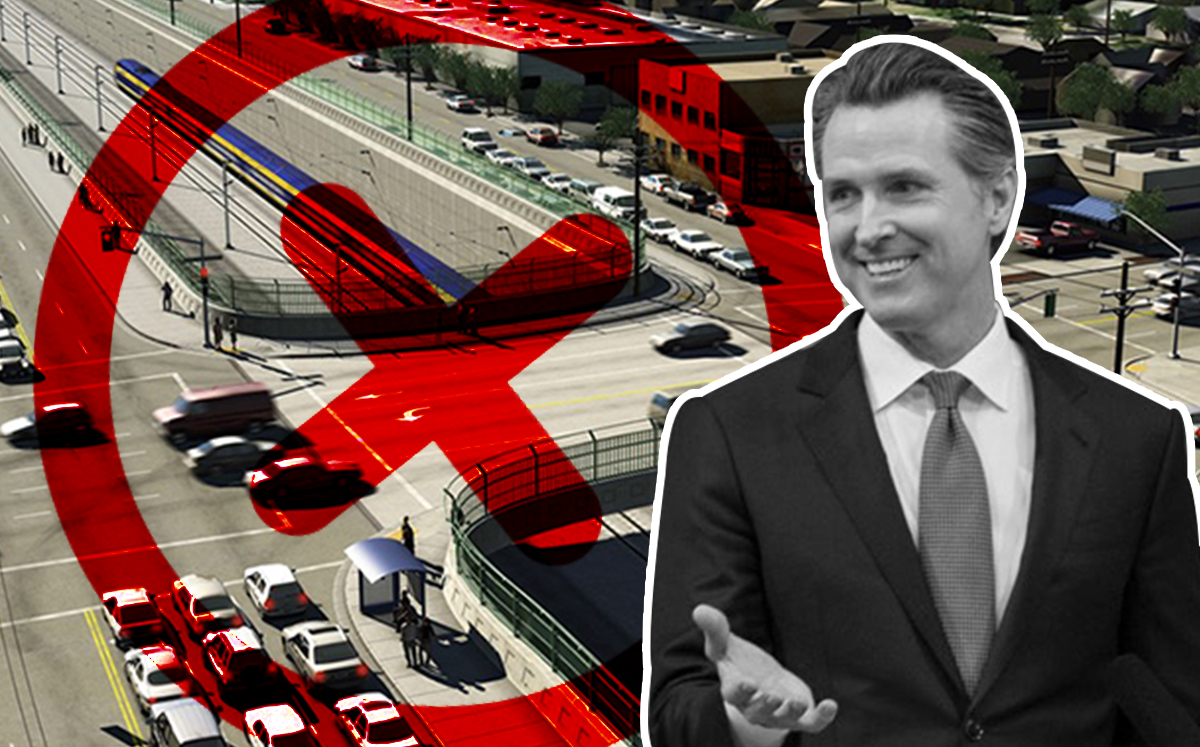Trending
Newsom’s move to halt state’s high-speed rail project could affect future development
The planned LA-to-San Fran line would have enticed development farther from big cities, eased housing crunch, experts say

Gov. Newsom’s surprise decision to halt plans for a high-speed rail project to connect the state’s major cities could have a major impact on development along that route.
That’s because such a system — which would have connected Los Angeles, San Francisco, Sacramento and San Diego — could have helped boost real estate development in outlying cities, otherwise too far for daily commuters to live.
During his State of the State speech on Tuesday, Newsom said the high-speed rail plan would “cost too much and… take too long.” The $77 billion plan was a signature initiative of Newsom’s predecessor, Jerry Brown.
Newsom’s decision puts plans for the massive project on hold, instead focusing the state efforts on a shorter 160-mile route between Bakersfield and Merced, according to a report in SF Gate.
Newsom said the state would use the rail line between Bakersfield and Merced as an “anchor” for economic investment into the Central Valley region and spoke of taking advantage of federal Opportunity Zones to boost development there.
The first phase of Brown’s plan for a high-speed rail would have connected San Francisco and Anaheim, with stops in San Jose, Bakersfield, Palmdale, Burbank, and L.A., among others.
The rail plan could have also helped ease the state’s housing crunch and housing prices, industry experts said, along with easing traffic congestion.
The major announcement also came after California’s high-speed rail authority nailed down a route through L.A. just four months ago.
Newsom’s office clarified after the speech that the governor was still committed to connecting L.A. and San Francisco, but his words at the State of the State put the project’s future in question.
“Right now, there simply isn’t a path to get from Sacramento to San Diego, let alone from San Francisco to L.A. I wish there were,” he said. [SF Gate] — Dennis Lynch




